Feminists We Love: Fadzai Muparutsa
May 25th was African Liberation Day (ALD). The Feminist Wire is celebrating ALD with two interviews of African Feminists We Love: Fadzai Muparutsa, a Zimbabwean queer feminist activist and Amina Doherty, a Nigerian feminist ARTivist, whose interview was published on May 25, 2014.
“We rise up and come together as Africans globally, working for a continent where self-determination, as well as physical, emotional, social and economic wellbeing are guaranteed to all.” says the Mayibuye Pledge, a statement written on this African Libereation Day by Africans ‘from many physical, spiritual, and political locations’. Both Amina and Fadzai have committed themselves to the pledge and called for a return to Africa outside of neo-colonial, neo-liberal and reactionary paradigms.
The Feminist Wire stands in solidarity with feminist, women, girls, trans, and gender non-conforming Africans globally on this African Liberation Day!
Fadzai Muparutsa is a Zimbabwean queer feminist activist active in multiple movements for social justice. She is currently the International and Regional Advocacy Officer at the Coalition of African Lesbians (CAL). Before joining CAL, Fadzai was the Programme Manager for Gender at Gays and Lesbians of Zimbabwe (GALZ) and GALZ’s representative within the Women’s Coalition of Zimbabwe. As part of her advocacy efforts at CAL, Fadzai has worked tirelessly with a number of other African activists for the recognition of rights of persons discriminated against based on their real or perceived sexual orientation and gender identity, and compounding oppressions, at the African Commission on Human and Peoples’ Rights (ACHPR), the continental human rights body of the African Union. In 2010, the Commission denied the Coalition of African Lesbians observer status but in a clear victory for the continued efforts of African activists, at its last session this May, the Commission adoped its first resolution on the protection against violence and other human rights abuses of people based on their real or perceived sexual orientation and gender identity. You can tweet her at @muparutsazim.
Hakima: How did you come to feminism and how do you feel it is defined in your life and activism?
Fadzai: Feminism chose me!
Feminism is growing me… I didn’t know the term feminism, but lived the values. My home, in Honde Valley is in a rainforest, a piece of heaven; a matriarchal monarchy, and has been so for over 120 years. The queen, Muzvare, is a single unmarried daughter selected from the house of Muparutsa. She watches over the people of Muparutsa/Mutasa village as an elder. The life of Muzvare in Honde Valley is steeped in history. She has been documented to have supported ‘vakomana’ the freedom fighters, during the liberation struggle by smuggling them into a web of caves that the Rhodesian Forces were never able to locate; she is known to commune with the land through leading traditional ceremonies to ensure consistent rainfall for the crops to yield fruit and peace in the land.
This magical story is true. This is my heritage.
It is from this heritage that I grew, and continue to grow, challenging and questioning patriarchy and its manifestation in perpetuating the subjugation of women in all their diversity socially, politically, culturally, economically and religiously.
I came to understand patriarchy from within the family, extending into other spaces within which I interacted. I remember from a young age that tasks in the household were distributed based on gender and sex. Hell would have frozen over for me or any of my women cousins if we had dared attend church in anything but the prescribed outfit: skirt, blouse or dress and shoes with some kind of elevation-heel and/or buckle. Wearing anything but, would have undeniably resulted in some random woman from the church rebuking the ‘Jezebel spirit’ in us and the shame we were bringing to our parents.
Policing and discrimination of women wasn’t only happening in the home, I could see it in other places. As a clear example of sexism in the political arena and governance structures, Timothy Mabhawu of the Movement for Democratic Change (MDC) said, during the passing of the Domestic Violence Bill [i] in parliament:
‘I stand here representing God Almighty. Women are not equal to men. It is a dangerous Bill and let it be known in Zimbabwe that the right, privilege and status of men is gone. I stand here alone and say this bill should not be passed in this House. It is a diabolic Bill. Our powers are being usurped in daylight in this House’.
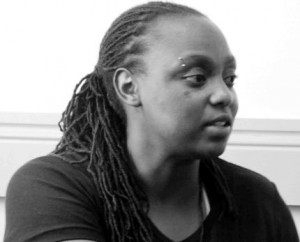 It is clear that our states use the legislature to pass laws that repress the peoples’ expression and freedoms. Laws that prevent us from organizing and participating in demonstrations against state sponsored hate, violence and abuse are enacted or morphed from our colonial past. Laws that restrict international funding to our organizations are enacted to either force us into shutting down, working outside the parameters of the state or to pushing us underground. The military and law enforcement agents brutalize and instil fear in citizens. Religion, while bringing hope to many, is also used to spread hate against marginalized and vulnerable groups of people.
It is clear that our states use the legislature to pass laws that repress the peoples’ expression and freedoms. Laws that prevent us from organizing and participating in demonstrations against state sponsored hate, violence and abuse are enacted or morphed from our colonial past. Laws that restrict international funding to our organizations are enacted to either force us into shutting down, working outside the parameters of the state or to pushing us underground. The military and law enforcement agents brutalize and instil fear in citizens. Religion, while bringing hope to many, is also used to spread hate against marginalized and vulnerable groups of people.
Our struggles are linked to the need of global capitalism to consolidate power. It is this power that we challenge in ourselves, in our homes, in our communities, in regional and international fora.
Hakima: You have been very much involved in the LGBTIQ movement in Zimbabwe and more broadly on the continent of Africa. What do you see as the opportunities and challenges for gains in this struggle for rights and equality?
Fadzai: At the beginning of the year, Nigeria and Uganda passed homophobic legislation jeopardizing the lives of many people in those countries and others in Africa based on real and perceived sexual orientation, gender identity and expression. Reports of increased arrests, mob attacks, false accusations, family disintegration, sexual assault, public flogging and other violations are rife. The fires of hate have spread to Liberia and Somalia who are engaged in talks to introduce similar legislation in their countries. In Kenya, members of parliament are questioning the lack of enforcement of a colonial-era law that punishes consensual same sex between men with a sentence of up to 14 years in prison.
The hate-mongering machinery is tight in its execution, it is coordinated and well-resourced. State controlled media has been used effectively, particularly in the case of the Red Pepper in Uganda that has published photographs, names and addresses of LGBTIQ activists calling on the State and citizens to take action. Religious leaders have used the pulpit to spread hate using scripture as in the case of Zimbabwe where children as young as 5 years old are being indoctrinated in hate under the guise of protecting them from homosexuality.
Proponents of the Anti-homosexuality Act in Uganda, were and continue to be a well-funded religious right-wing with significant support from western countries, in particular the USA, and significant influence with political figures. It would be remiss of us as human rights defenders (HRDs) not to link what we see as national challenges to global politics. The rise of religious fundamentalism is a worrying trend, not only in Africa, where the church is known to have come with the Bible, blinded us from their travelling companions who were stealing our land, erasing and decimating our history and enslaving us! In international multi-governmental spaces such as the United Nations Human Rights Council or the Commission on the Status of Women, the religious right-wing, led by the Vatican, a super power and non-voting state at the United Nations; has used its influence with states to reverse gains made in protocols established to address sexual and reproductive health and rights by restricting women’s bodily autonomy and the right to choice.
It is clear that the hate machine is not only targeted towards LGBTIQ identifying persons, but anyone who is on the margins, trouble makers, rabble/rebel rousers, women and girls; those loud members of society who are speaking against state sanctioned impunity to violations, the rule of law and have the nerve to call states out. Those whose homes and livelihood have been destroyed by ill-conceived state operations such as “Operation Murambatsvina’’ in Zimbabwe. When the masses rise to challenge the State, there is no hesitation in the full use of the justice system, the army and law enforcement agents to fight ‘terrorism’. In Uganda, the passing of the Anti-Pornography Act (known as the Mini Skirt Ban) heralded the ‘policing of our sexuality’.
It is evident that we are fighting a war on many fronts and that means we need to build an army of such magnitude to last the long haul. Examples of the Global actions against the Anti-Homosexuality Act in Uganda and the Same-Sex Marriage Prohibition Act in Nigeria were an indication that we can come together against hate. Demonstrations were organised across the world, statements and communiques were sent out to the governments of Uganda and Nigeria. Public personalities such as Chimamanda Ngozi Adichie and Binyavanga Wainana ‘came out’ strongly in their condemnation of failure of states to protect all its citizens including those who are gender non-conforming, gay men, lesbian women, bisexual and trans*. These are the kinds of actions we should continue to support and be involved in.
But as stated before, our actions are not solely focused on the narrow ways in which LGBTIQ persons or on sexual orientation and gender identity and expression are constructed in the mainstream, but on the general malaise we find ourselves in as Africans. Even though this approach might leave us out of the trendy bus, its important that we use an intersectional approach that allows us to identify with various issues that affect us and our neighbours. We cannot forget that there are racial and ethnic injustices that continue plague us as remnant of colonialism on the continent; that the rise of militarisation and the infiltration of the capitalist agenda disguised as development is crippling us.
We should come together against the massive land grabs in Africa by multi-billion dollar corporations that are supported by our states. Land grabs that are resulting in the production of cash crops like tobacco at the expense of growing food to feed citizens, the destruction of protect land in favour of construction of malls through corrupt activities to benefit government officials. Land grabs that fuel the extractive industry, destroying the land.
We cannot afford to be silent about the abductions of schoolgirls in Nigeria. It is not a Nigerian problem, it is a challenge and call to action we all share.
Whatever the case, our strategy is not about further fragmenting an already fragile movement, but rather unifying in our diversity.
Hakima: As an LGBTIQ African how do you navigate the use of anti-imperialist rhetoric, and religion, culture and tradition to perpetuate violence against LGBTIQ communities and people in Africa?
Fadzai: There is nothing new about struggling!
When we go down that road, the first thing to come to my mind is, here we go again… this is getting old! I don’t say this to disrespect many who are in the struggle and those who have gone. It is acknowledgement that this war has been fought before and yet it continues to rage furiously.
I’m tired of hearing the same old rhetoric about being un-African, agents of the West, going against the order of nature, God created Eve not Steve. I’m tired of being made to feel subhuman by constantly being referred to as being worse than dogs and pigs!
I’m tired of the manipulation of liberation language and the misuse of sovereignty, terrorism to incite violence against us! I’m tired of the pathologizing and forced institutionalisation in mental facilities of those who are fearless! I’m tired of seeing family and friends buying into this rhetoric and breaking support systems! I’m tired of the policing of our sexuality and sexuality baiting to shame us!
I’m ANGRY.
It is not enough to show our states their double standards. They know first-hand how similar tactics were used by colonial powers to diffuse liberation struggles. States, their organs and machinery have appropriated human rights language and used the tactics of former colonial powers to stifle dissent of any kind.
Personally, I feel that expending energy to challenge oppressive rhetoric based on religion, culture and tradition is not of much benefit, although its important to show the contradictions. States, religious and traditional leaders who label LGBTIQ person un-African and agents of the West, forget their own relationships with Western states and their open door system to the same western states and others who are plundering our countries. We will not stop calling all of them out on their strategy to distract us from existing oppressions and violations.
Because of the nature of our work, states enact legislation to prevent us from doing our work, from holding them accountable to their obligations. Not only obligations to the regional and international protocols, but also their obligations as human beings, leaders who identified as Pan Africanists, who are admired as liberation heroes. Leaders who are not more concerned with protecting the shrines of the dead instead of protecting citizens. Leaders who are less concerned with looting and plundering and are ensuring that our hospitals are well staffed, well equipped, that we have running water and electricity. Leaders who are not accepting aid and trade deals that adversely affect our health and environment. We cannot sit back when elephants and other wildlife are being poisoned in our national parks and the rest are in the backyard of their mansions.
The rise of the religious right in all our countries is a frightening reality.
The Hashtag #BringBackOurGirls… enough said!
Hakima: Who have you drawn inspiration from and why?
Fadzai: My biggest inspiration is drawn from nature, from seeing flowers blooming, plants in fruition, the moon glowing through a thin whisp of clouds, the smell of dung, rain… This is my source of energy and connection to the rest of the universe.
Hakima: You have talked about the centrality of your father and his love to you and in your politics. How has he influenced your life and work?
Fadzai: My father was a legend, the Chief, Mambo Mutasa.
He was a protest theater activist, playwright and theater director.
When meeting people for the first time with my father, I knew I would leave the conversation with full knowledge of who the person was, not only their name, but their rural home, their totem and our relation to each other. I would have an addition to my family.
Family, in all its dynamics and presentations was something I was told to always value. It is from our families, the ones we are born in and the ones we build for ourselves, that we share love and support. Our family and home in Honde Valley were a source of major pride for my dad.
My closest friends are my family, my grounding is Honde Valley.
When I started working at Gays and Lesbians of Zimbabwe (GALZ), I was scared of people’s reactions to my working at a gay organisation. I started thinking of ways to respond without outing myself, coming up with statements like, not everyone working in a hospital is a doctor! I worried it would mean that everyone who knew me would have confirmation of my queerness. But on my first day of work at GALZ my dad said to me ‘Stand for what you believe, be principled in who you are’.
I try to live this everyday!
[i] The Domestic Violence Act was passed in 2006

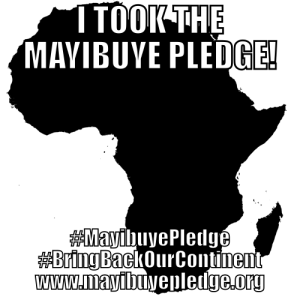
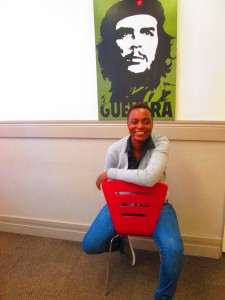
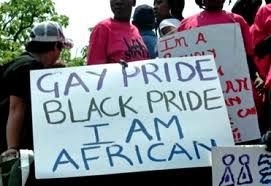


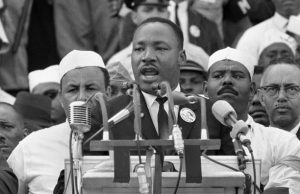
Pingback: Feminists We Love: Fadzai Muparutsa | CAL Advocacy Blog